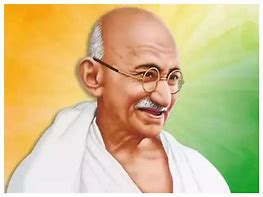
Phone : -
Start Date : -
End Date : -
Start Time : -
End Time : -
Mahatma Gandhi, born Mohandas Karamchand Gandhi on October 2, 1869, in Porbandar, Gujarat, India, is one of the most influential figures in modern history, renowned for his role in leading India to independence from British rule through nonviolent resistance.
Gandhi was born into a modest Hindu family. His father, Karamchand Gandhi, was a chief minister in Porbandar, and his mother, Putlibai, was a deeply religious woman. Gandhi was educated in India before traveling to London in 1888 to study law. After completing his studies, he returned to India in 1891, but struggled to establish a legal practice.
In 1893, Gandhi moved to South Africa to work as a legal advisor for an Indian business. It was in South Africa that he first employed his philosophy of nonviolent resistance, or "satyagraha," to fight against racial discrimination and injustice. His efforts included organizing protests and boycotts against discriminatory laws, which gained him recognition and experience in leading mass movements.
Gandhi returned to India in 1915 and soon became a key leader in the Indian independence movement. He advocated for nonviolent resistance and civil disobedience as powerful tools for social and political change. His leadership was instrumental in mobilizing millions of Indians to join the struggle for independence.
Key Movements and Campaigns:
Champaran and Kheda Agitations (1917-1918): Gandhi led successful campaigns to address the grievances of farmers in Champaran (Bihar) and Kheda (Gujarat) against exploitative practices by British authorities.
Non-Cooperation Movement (1920-1922): This movement aimed to boycott British goods, institutions, and honors. It was a mass mobilization that significantly challenged British rule.
Salt March (1930): Gandhi's 240-mile march to the Arabian Sea to produce salt in defiance of British salt laws was a pivotal event in the struggle for independence. It garnered international attention and support.
Quit India Movement (1942): In response to the failure of the Cripps Mission and the continued British presence in India during World War II, Gandhi launched the Quit India Movement, demanding an end to British rule. This movement led to widespread arrests and a significant crackdown by the British.
Gandhi's philosophy was deeply influenced by Hindu principles, as well as ideas from other religious and ethical systems. His key beliefs included:
Despite his dedication to nonviolence, Gandhi's later years were marked by personal and political challenges, including communal violence and divisions over the partition of India. On January 30, 1948, Gandhi was assassinated by Nathuram Godse, a Hindu nationalist opposed to Gandhi's policies.
Gandhi's legacy endures globally. His principles of nonviolence and civil disobedience have inspired numerous movements and leaders, including Martin Luther King Jr., Nelson Mandela, and many others in the quest for social justice and equality. His birthday, October 2, is observed as Gandhi Jayanti in India and as the International Day of Non-Violence worldwide.